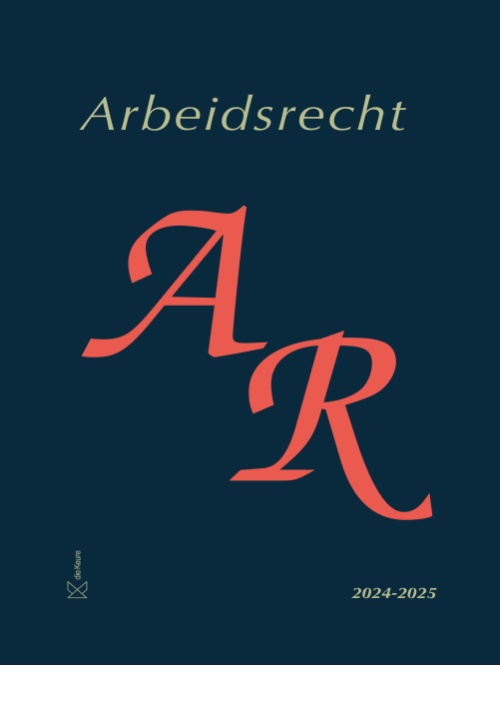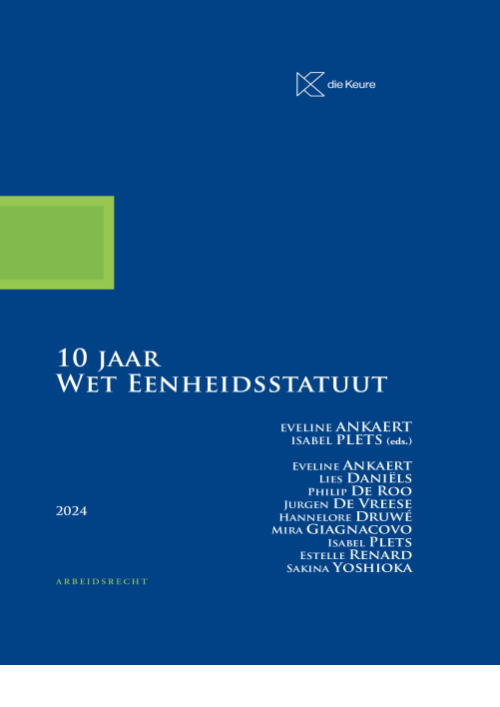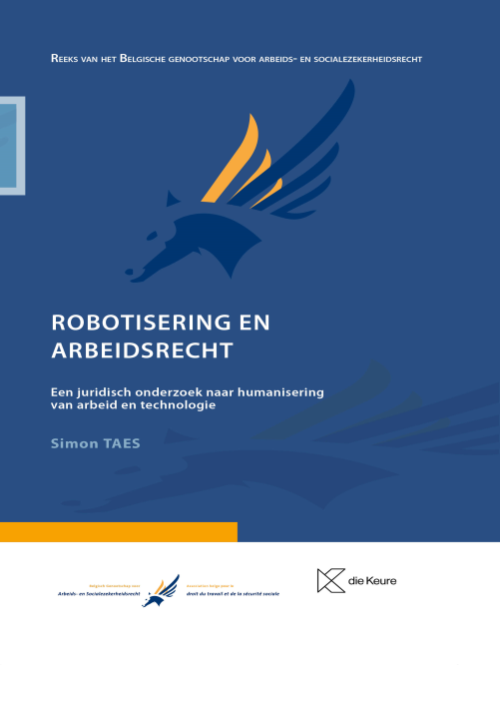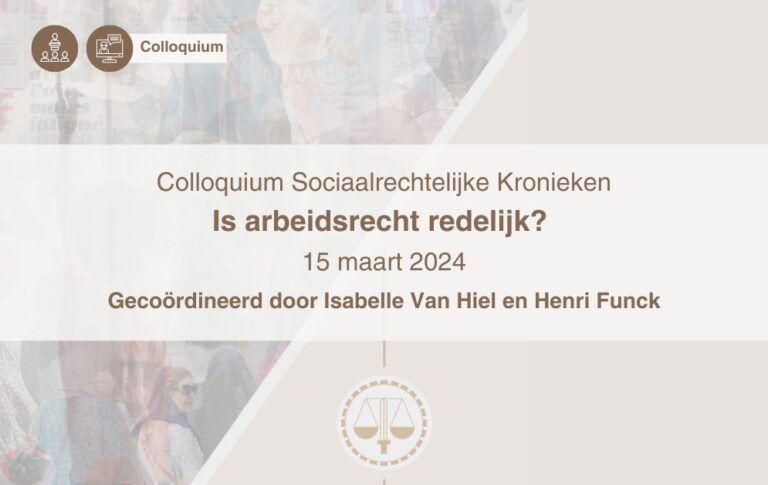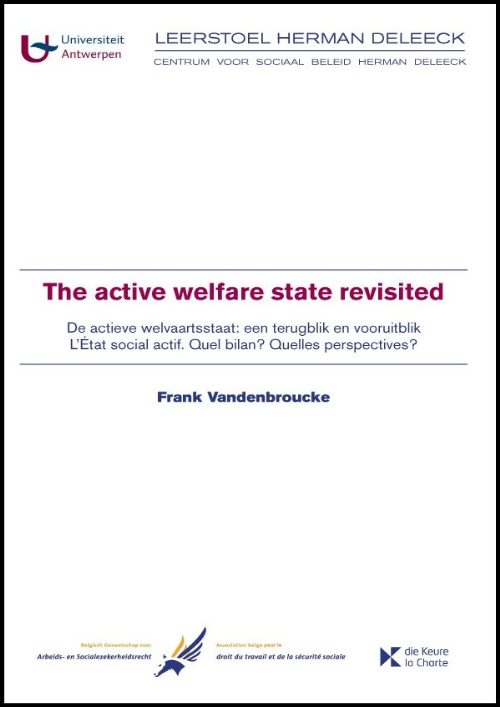
The Active Welfare State Revisited
This essay revisits social policy developments in Belgium in the decade 2000-2010 on the basis of stylized facts with regard to spending, employment, the social policy case load, dependency rates and poverty. With regard to spending it focuses on the long-term evolution in Belgian public social spending and the extent to which the observed spending pattern accommodated the perceived emergence of new social risks. By means of ‘budgetary effort indicators’, the analysis disentangles the impact of demographic evolutions from deliberate shifts in broad policy priorities. In addition, it addresses some critical points in the performance of the Belgian welfare state, such as the rising number of children at risk of poverty, the need to anticipate long-term demographic ageing, and (briefly) the need for structural changes in parts of the health care system. The analysis shows that preparing a next wave of social reform is imperative.
Author
Frank Vandenbroucke is professor at KU Leuven (95 %) and also teaches Social Economic Analysis in the interdisciplinary degree programme Social and Economic Sciences at Antwerp University. Frank Vandenbroucke does research on social developments in EU member states, such as participation in the labour market, income development and distribution, education, active ageing, social protection, etc. These themes are strongly related to his Phd. on social justice that he obtained in 1999 at Oxford University. He conducts his research in close interdisciplinary cooperation with researchers from various faculties in Human Sciences at KU Leuven. Research on the social developments in Europe and the role of the European Union is important, says Frank Vandenbroucke: “For quite some time European integration has influenced social developments in the member states. But there is more. The European Union will not get out of the current crisis if its members are not able to set out a common course, also in the social field. How that will take place exactly is not certain, and is partly unexplored terrain and will be the subject of quite some debate in the years to come.”
Herman Deleeck Centre for Social Policy – University of Antwerp
The Herman Deleeck Centre for Social Policy and the University of Antwerp established the Herman Deleeck Chair in 2012 at the occasion of the Centre’s fortieth anniversary and in commemoration of the passing away of prof. Deleeck ten years ago.
Herman Deleeck committed his entire career to convincing the research community, policy makers and the public at large of the import ance of equality of opportunity and social redistribution through the welfare state’s institutions. In the same tradition, the Chair aims to offer a platform to renowned experts in social policy to share their expertise and ideas.
Frank Vandenbroucke is the first holder of the Herman Deleeck Chair.
€50
Auteurs
Productspecificaties
Inhoud
De actieve welvaartsstaat: een terugblik en vooruitblik
1. De actieve welvaartsstaat: een kritische terugblik
2. Vooruitblik: de langetermijnhervorming van de pensioenen moet nu voorbereid worden
3. Investeren in kinderen
4. Besluit: van analyse naar beleid en politiek
L’État social actif. Quel bilan? Quelles perspectives?
1. L’État social actif : une rétrospective critique
2. Perspective : la réforme à long terme des pensions doit être préparée aujourd’hui
3. Investir dans les enfants
4. Conclusion : de l’analyse à la politique
The active welfare state revisited
Introduction
1. ‘New’ and ‘old’ social risks and the social policy orientations of the 2000s: a stylized presentation
2. Social spending: stability and change
3. Health care
4. The adequacy of social protection, employment incentives and activation
5. The caseload of social policy and benefit dependency
6. Individual and household employment: not a frozen landscape, but hysteresis in household joblessness
7. The poverty record: a changing generational balance
8. The quest for sustainable social justice
9. Preparing the next wave of reform is imperative
Appendix 1: Employment incentives and part-time work
Appendix 2: Decomposition of differences in at-risk-of-poverty rates
Appendix 3: A map of child poverty risks in the EU
Volledige omschrijving
This essay revisits social policy developments in Belgium in the decade 2000-2010 on the basis of stylized facts with regard to spending, employment, the social policy case load, dependency rates and poverty. With regard to spending it focuses on the long-term evolution in Belgian public social spending and the extent to which the observed spending pattern accommodated the perceived emergence of new social risks. By means of ‘budgetary effort indicators’, the analysis disentangles the impact of demographic evolutions from deliberate shifts in broad policy priorities. In addition, it addresses some critical points in the performance of the Belgian welfare state, such as the rising number of children at risk of poverty, the need to anticipate long-term demographic ageing, and (briefly) the need for structural changes in parts of the health care system. The analysis shows that preparing a next wave of social reform is imperative.
Author
Frank Vandenbroucke is professor at KU Leuven (95 %) and also teaches Social Economic Analysis in the interdisciplinary degree programme Social and Economic Sciences at Antwerp University. Frank Vandenbroucke does research on social developments in EU member states, such as participation in the labour market, income development and distribution, education, active ageing, social protection, etc. These themes are strongly related to his Phd. on social justice that he obtained in 1999 at Oxford University. He conducts his research in close interdisciplinary cooperation with researchers from various faculties in Human Sciences at KU Leuven. Research on the social developments in Europe and the role of the European Union is important, says Frank Vandenbroucke: “For quite some time European integration has influenced social developments in the member states. But there is more. The European Union will not get out of the current crisis if its members are not able to set out a common course, also in the social field. How that will take place exactly is not certain, and is partly unexplored terrain and will be the subject of quite some debate in the years to come.”
Herman Deleeck Centre for Social Policy – University of Antwerp
The Herman Deleeck Centre for Social Policy and the University of Antwerp established the Herman Deleeck Chair in 2012 at the occasion of the Centre’s fortieth anniversary and in commemoration of the passing away of prof. Deleeck ten years ago.
Herman Deleeck committed his entire career to convincing the research community, policy makers and the public at large of the import ance of equality of opportunity and social redistribution through the welfare state’s institutions. In the same tradition, the Chair aims to offer a platform to renowned experts in social policy to share their expertise and ideas.
Frank Vandenbroucke is the first holder of the Herman Deleeck Chair.
Anderen bekeken ook
Blijf op de hoogte van relevante informatie, recente publicaties en opleidingen.
Schrijf u in op onze nieuwsbrief.
Nieuwsberichten
Blijf op de hoogte van de laatste ontwikkelingen en nieuwe updates.
